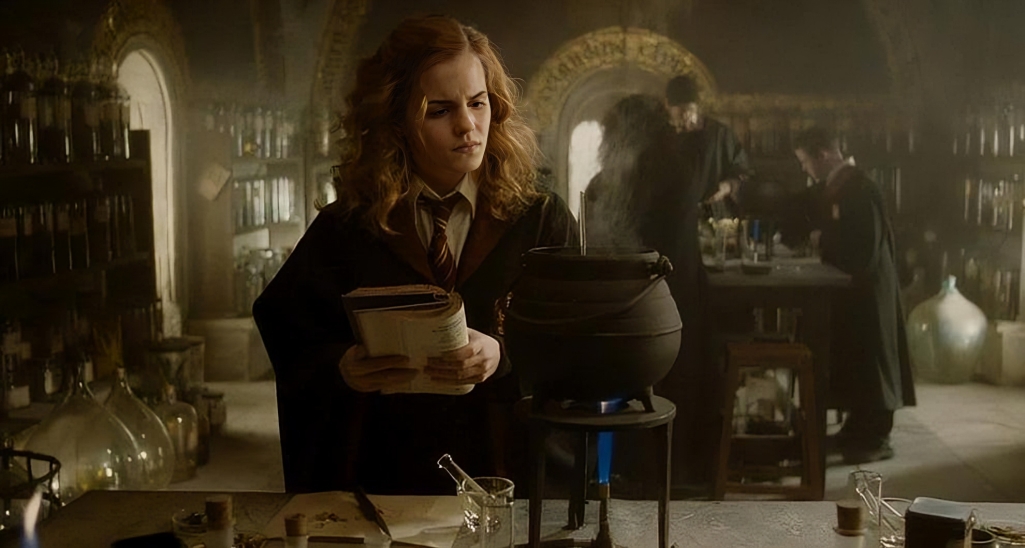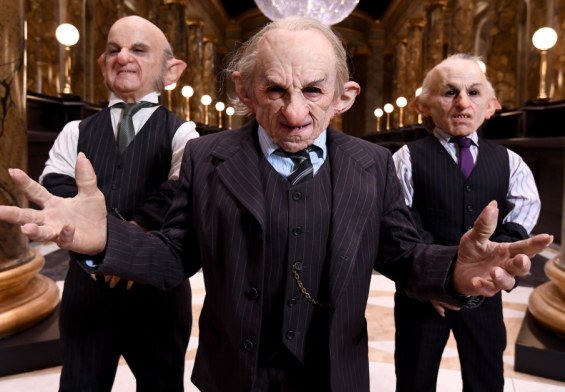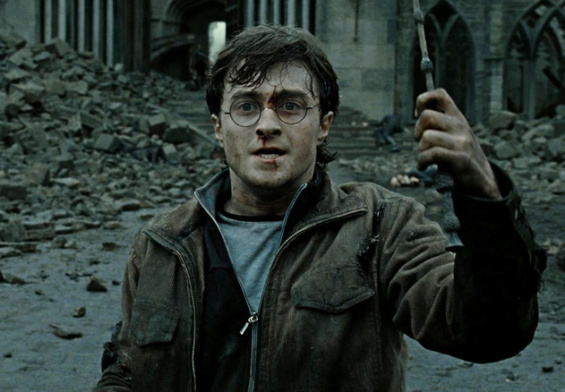
Potion making is no easy feat. It requires years of studying, endless practice, and a deep understanding of magical ingredients. Each potion demands precision and patience, with the slightest mistake potentially resulting in disastrous consequences.
From brewing the simplest healing drafts to concocting complex elixirs that alter reality, potion making is an art that few can master. And those who excel in this field are often revered for their expertise and are sought after for their knowledge and skill.
Only a handful of potion makers have been famous enough to earn spots within history texts at Hogwarts, and while some became potion makers for money, others devoted their lives to the craft out of pure love.
Today, we’re going to be deep diving into the life of arguably the best potion maker of them all.
In Harry Potter and the Half Blood Prince, Harry dominates his potions class, demonstrating a level of precision and skill that he had never shown before.
His success was so remarkable that it not only earned him high marks, but also the respect and admiration of his peers and teacher, Professor Horace Slughorn. In the realm of potions, Slughorn was a master of his craft, possessing a deep and extensive knowledge of potion making that set him apart from his peers.
As a seasoned potions master, Slughorn had a profound understanding of potion making, accumulated over decades of practice and study. He could seamlessly combine ingredients in perfect proportions and knew the exact techniques required for each step, whether it was simmering, stirring, or adding a delicate ingredient at the precise moment.
His familiarity with a wide range of potions, from the simplest antidotes to the most complex elixirs, showcased his comprehensive understanding of the craft. Impressing slugcorn was no easy feat. But of course Harry had a little help, with the majority of his newfound success in potions owed to a textbook that once belonged to none other than Professor Snape.
But what if a student could walk into potions class and excel in the very same way that Harry did, without the help of a special textbook? What if there was a master potion near that thrived on natural talent and intuition?
Recommended for You:- How Muggleborns Are Magical and How They Are Chosen for Hogwarts
- Why was Harry Potter So Rich? The Real Reason Behind His Wealth Explained
- The Most EVIL Dark Wizard You’ve NEVER Heard Of
- What really happened to Hagrid’s wand? The answer will shock you!
Zygmunt Budge
Zygmunt Budge was a half bud wizard born somewhere in the British Isles in either the 16th or late 15th century.
His mother, who seemed indifferent to him, disparagingly referred to him as fungus face, due to his less than ideal looks. But despite this lack of maternal affection, Zygmunt faced solace and inspiration in the company of his great grandmother, a distressingly giggly witch whose cheerful disposition was a sharp contrast to Zygmunt’s more serious temperament.
And it was this same great grandmother who had a keen interest in potion making that passed down to young Zygmunt an old recipe for the laughing potion, unknowingly altering the course of Zygmunt’s life.
Because you see, it was this gift that sparked Zygmunt’s lifelong passion for the craft of potion making. After receiving the gift, Zygmunt vowed to refine the potion, setting the stage for his future as one of the greatest potion makers in history.
When the time came and Zygmunt was old enough, he began his studies at Hogwarts School of Witchcraft and Wizardry, where he was sorted into an unknown house. Because Budge had been born to the art of elixirs and concoctions from a young age, he wasn’t very popular with his peers.
And when the time came for him to attend Hogwarts, he had already grown accustomed to the cruel jeers and taunts that other children would cast his way. But Zygmunt, who had aspirations of being the greatest potioneer to have ever lived, used this adversity as fuel for his determination.
His early experiences of ridicule only strengthened his resolve to prove himself through his mastery of potions. At Hogwarts, he immersed himself in every aspect of potion making, spending countless hours in the library studying ancient texts and experimenting in the dungeons.
Which is probably why you won’t be surprised to hear that at the age of fourteen, in his third or fourth year, Zygmunt was top of his class in potions, excelling in a way unlike any other student before.
And on one occasion, his height of expertise was put on display for all, when he confidently corrected his professor on the proper use of Mackled Malaclaw Tails in potion making.
Fueled by his ambition and confidence in his abilities, Barge felt ready to showcase his talent on a larger stage and sought permission from the Hogwarts headmaster to participate in the Wizarding Schools potions championship.
The Wizarding Schools potions championship is a highly esteemed competition that has been held every seven years since 1407. Held in a special enchanted garden, the competition brings together aspiring potion makers from different wizarding schools who must demonstrate their skills by completing various challenges and brewing potions.
Think try was a tournament, but for potions. The only issue, to qualify for the championship, participants must be at least 17 years old. Therefore, Barge’s plans were thwarted when the headmaster denied his request, citing his young age and the dangerous nature of the competition as reasons for his exclusion.
This decision triggered a wave of frustration and anger within Barge, leading him to make a drastic choice. In a bold act of defiance, he decided to abruptly withdraw from school in protest against the headmaster’s ruling.
For Budge, this pivotal moment marked a turning point in his relationship with Hogwarts, the institution that he felt was stifling his potential and inhibiting his growth as a skilled potioneer.
Despite the repercussions of his abrupt departure, Budge remained firm in his conviction that he had outgrown the constraints of Hogwarts and embraced the path of independence and self discovery.
This decision ultimately shaped Budge’s future, solidifying his reputation as a wizard who was unafraid to challenge conventions and forge his own way in the world of magic.
As I’ve said, it was my life’s dream to win the wizarding school’s potions championship when I judged that I was ready and was 14 years old, top of my year in potions, and able to correct my professor on the proper use of Mackled Malaclaw Tails.
I asked my headmaster for permission to enter, but alas, imagine my horror disgust when he forbade me.
Because I was not yet 17, and the competition was too dangerous.
After leaving Hogwarts, Zygmunt relocated to a secluded island called Hermitrae in the Outer Hebrides.
There he lived in a rat infested shack, with only a flock of sheep for company, occasionally using them for potion testing. And it was on Hermitrae that Zygmunt spent the remainder of his life conducting experiments, refining formulas, and inventing new concoctions.
These concoctions included the beautification potion, a potion that transformed the appearance of the drinker, making them seem to be attractive, even if they were not.
At least it’s only temporary. Imagine spending your life attracting hordes of pouring admirers.
Ugh, a repellent thought.
Doxicide, a black coloured foul smelling potion used to paralyze and spray doxies. The laughing potion, a potion that, as you might have guessed, induced laughter in the drinker.
A potion to induce uncontrollable merriments. A finely balanced potion requiring delicacy of touch. If made incorrectly, the results can vary from hysterical mania to deep and inconsolable melancholy.
Shrinking solution, a bright green potion that caused the drinker to shrink to a smaller form.
A more subtle potion that many appreciate at first saver, the shrinking solution causes creatures to shrink to a younger form.
And finally, the crowning jewel of his career, and one you will have heard of, Felix Felicis, aka Liquid Luck.
Mine own invention, my masterpiece, the crowning achievement of my career, bottled good fortune.
Brewed correctly, the drinker of this potion will be lucky in all their endeavors, but be warned, excessive consumption is highly toxic and can cause extreme recklessness.
Fans of Quidditch were quick to protest that a potion which gives the drinker good luck was hardly fair and use of my potion was banned, quite rightly, from all competitive events, except potion making tournaments.
Liquid luck in essence enables the consumer to become successful in all of their endeavors, and in my opinion this is the most powerful potion of all, because its possibilities are seemingly limitless.
Whatever you try to use it for you will be successful at, which means that with it you should be able to achieve almost, well, anything. How liquid luck actually works on the other hand is another question, one which I’ve actually answered in my video, the truth about liquid luck revealed.
In any case, unlike many other potioneers, who achieved wealth and fame, Zygmunt instead chose to live his life in isolation. The mental abuse he suffered at the hands of his mother was more than enough to instill a deep dislike for people within Zygmunt.
Please understand, some have suggested disappointment warped me, this is nonsense. I enjoyed a long and full life, alone on Hermetray, working on this, my masterpiece, my legacy – the book of potions.
I always dreamt that one day this book might accompany a great potioneer to victory at the championship, and now it feels as though it is in reach.
And during this long period of isolation, he dedicated himself to crafting his masterpiece, the book of potions, which he envisioned as his enduring legacy for future generations of potion makers.
The book includes the following forward
I am Zygmunt Budge, and I am the greatest potion maker ever born. This is no empty boast. I invented many of the wizarding world’s most powerful potions. I discovered the properties of hundreds of secret plants and creatures.
I have dedicated my life to the most mysterious and misunderstood branch of magic, and these pages contain secrets of my art, distilled for new generations of Hogwarts students.
And even after Zygmunt’s passing, a mysterious aura of his essence continued to resonate within the pages of the book of potions.
This residual presence seemed to imbue the book with a mystical energy. enabling it to serve as a spectral guide to those who would come to study its contents.
As future readers delved into the text, they would sometimes sense a subtle whisper of advice or a gentle nudge in their potion making endeavors, as if Zygmunt Budge’s spirit lived on through the pages to mentor and inspire aspiring potioneers for generations to come.
And that concludes the story of Zygmunt Budge. What do you think? Was Budge the most powerful potion maker in wizarding history, or is that title owed to someone else?
Let me know down in the comment section below.



